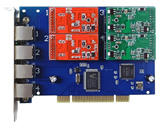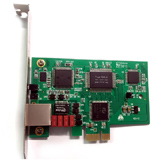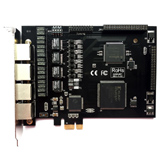
| Index |
||||||||||||||||
About VoIP Quality of ServiceSome broadband connections may have less than desirable quality. Where IP packets are lost or delayed at any point in the network between VoIP users, there will be a momentary drop-out of voice. This is more noticeable in highly congested networks and/or where there is long distances and/or interworking between end points. Technology has improved the reliability and voice quality over time and will continue to improve VoIP performance as time goes on. It has been suggested to rely on the packetized nature of media in VoIP communications and transmit the stream of packets from the source phone to the destination phone simultaneously across different routes (multi-path routing). In such a way, the temporary failures have less impact on the communication quality. In capillary routing it has been suggested to use at the packet level Fountain codes or particularly raptor codes for transmitting extra redundant packets making the communication more reliable. A number of protocols have been defined to support the reporting of QoS/QoE for VoIP calls. These include RTCP XR (RFC3611), SIP RTCP Summary Reports, H.460.9 Annex B (for H.323), H.248.30 and MGCP extensions. The RFC3611 VoIP Metrics block is generated by an IP phone or gateway during a live call and contains information on packet loss rate, packet discard rate (due to jitter), packet loss/discard burst metrics (burst length/density, gap length/density), network delay, end system delay, signal / noise / echo level, MOS scores and R factors and configuration information related to the jitter buffer. RFC3611 VoIP metrics reports are exchanged between IP endpoints on an occasional basis during a call, and an end of call message sent via SIP RTCP Summary Report or one of the other signaling protocol extensions. RFC3611 VoIP metrics reports are intended to support real time feedback related to QoS problems, the exchange of information between the endpoints for improved call quality calculation and a variety of other applications.
|
||||||||||||||||





